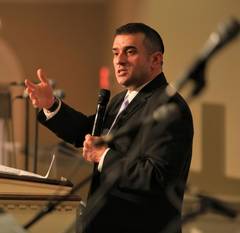- About Us
- Learning
- Resources
- Get Involved
- Membership
- Jobs
Radical Openness
01/06/2015 05:05:00 AM
| Author | |
| Date Added | |
| Automatically create summary | |
| Summary |
In the course of my spiritual journeys, I have been blessed with many rabbis, many mentors. Some I've been privileged to know personally and learn from directly; others, I know through their writings and their students.
Among the most influential of mentors I've never met is Emmanuel Levinas (1906-1996). His name isn't commonly known, but his teachings have had a profound impact on spiritual seekers of all stripes. Pope John Paul II called his writings a 'testimony for our age,' and his writings are invaluable for anyone who wonders if there can be faith or belief after the Holocaust, after we have all become painfully aware how easily faith and belief can lead to bloodshed and horror.
Levinas' fingerprints are all over the two classes that we have beginning at BHA this week.
First, most obviously is our class on Talmud as Philosophy, in which we'll look at some of Levinas' interpretations of the Talmud. The five-session class begins this Sunday morning and it will be an opportunity to look at Judaism as, to use Levinas' own language, a "religion for adults." His is an approach that is concerned first and foremost with ethical obligations and assumes skepticism about religion and the claims of religious authority and dogma. In honesty, I can't promise that it will be easy reading, but I think I can promise that it will be intellectually nourishing and rewarding.
Second is our interfaith class on the Exodus that will begin this Thursday evening. We'll be teaming up with three neighborhood churches to look at how different faith traditions interpret this foundational story. It's not obvious that Jews and non-Jews can or even should discuss matters of faith. Rabbi Joseph Soloveitchick, a towering figure in the world of Modern Orthodoxy, prohibited interfaith dialogue on the grounds that each party might sacrifice our the absolute and exclusive truth of their respective faiths. Levinas holds that just the opposite is true - there is no faith, no truth no dogma more absolute than the ethical reality of another human being, be they Jewish, Christian or otherwise. In this, as in many other things, I am a student of Levinas.
In this new year, I hope you'll take advantage of one (or both!) of these opportunities to lean more deeply about Judaism, Christianity and perhaps our own souls as well.
Thu, November 6 2025
15 Cheshvan 5786
RABBI BRENT SPODEK

Join Our Mailing List
Privacy Settings | Privacy Policy | Member Terms
©2025 All rights reserved. Find out more about ShulCloud


